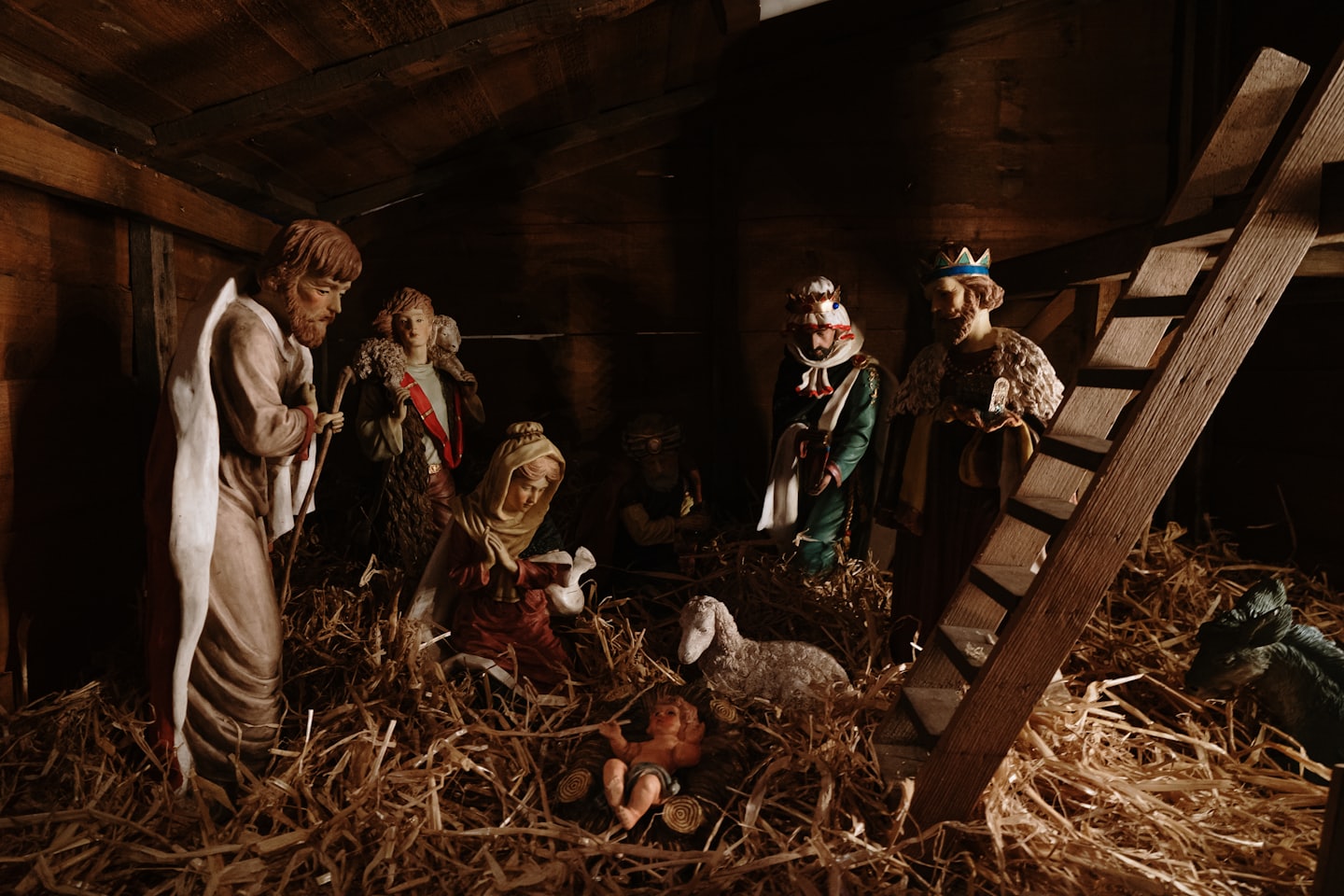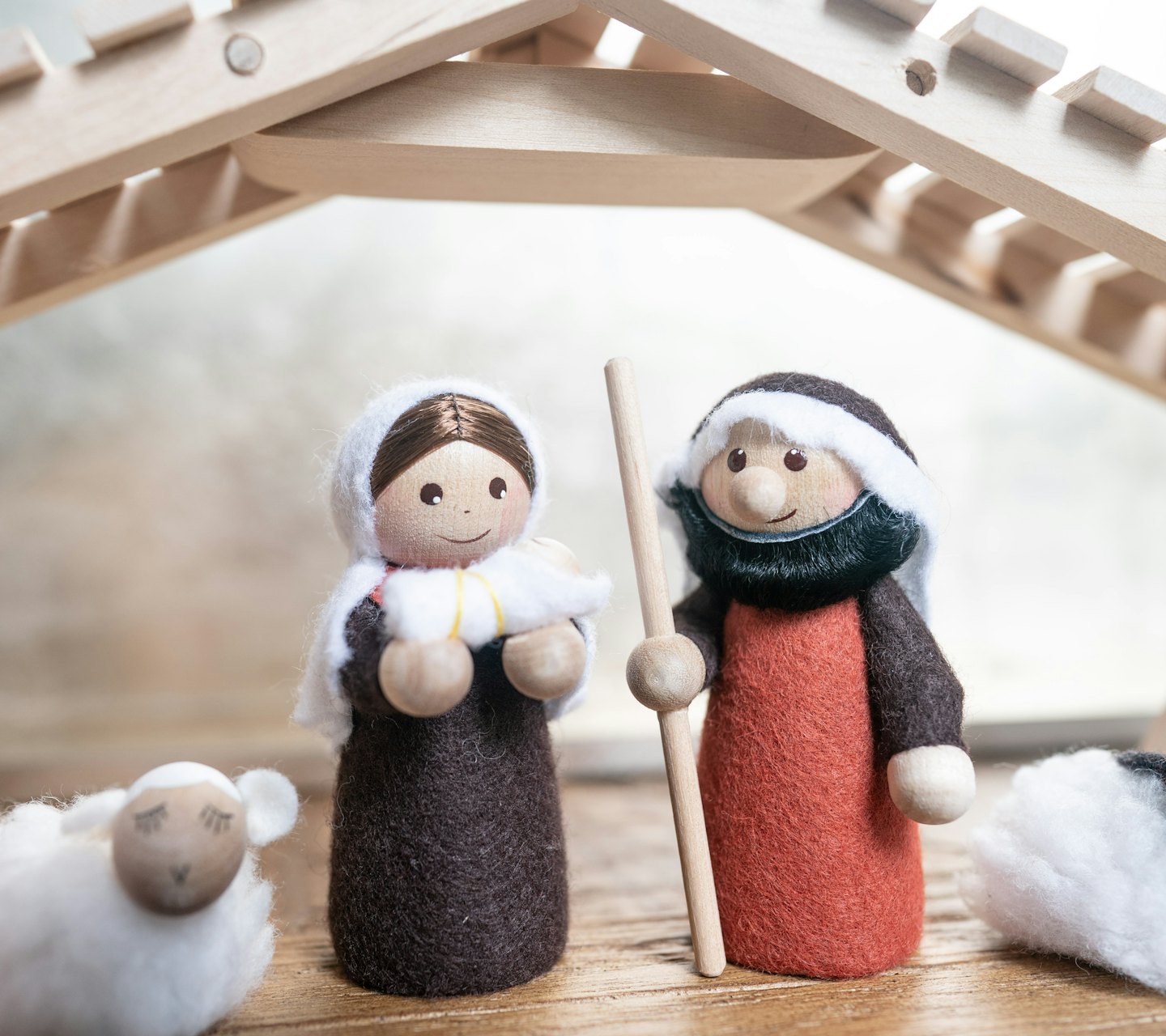Jesus’ Birth Date and Mithras
Exploring Jesus’ Birth Date and Mithras
Delve into the historical debates surrounding Jesus’ December 25th birth date and discover the ancient Persian deity Mithras, linked with light and truth.
📅 Was Jesus Born on December 25?
- No biblical evidence pinpoints the exact date of Jesus’ birth.
- The Gospels focus on theological meaning, not calendar specifics.
- Luke 2:8 mentions shepherds watching their flocks at night—something unlikely in cold December weather, suggesting a spring or autumn birth is more plausible.
🔥 Why December 25 Then?
- The date was adopted centuries later, likely in the 4th century.
- It aligned with Roman festivals like:
- Saturnalia (Dec 17–23): A celebration of Saturn, god of agriculture.
- Dies Natalis Solis Invicti (Dec 25): “Birthday of the Unconquered Sun,” honoring the sun god Sol Invictus2.
- Early Christians may have chosen this date to reframe pagan celebrations and emphasize Christ as the true “light of the world.”
🕊️ The Real Focus: The Incarnation
- Theologically, what matters is that Jesus was born, not when.
- The incarnation—God becoming flesh—is the core miracle celebrated.
- Early Christians were more concerned with Jesus’ death and resurrection than His birth.
🧠 Fun Fact
Some early Christian writers, like Origen, even mocked birthday celebrations as pagan customs. It wasn’t until much later that Jesus’ birth became a major feast.
So while December 25 has become tradition, it’s not sacred in itself. The real celebration is about who was born, not when. Want to explore how other holidays got their dates—or how early Christians shaped the calendar? Edit in a page
romans adoping persian custom of mithirus
Absolutely—this is a fascinating example of cultural and religious fusion in the ancient world. The Roman adoption of Mithras, originally a Persian deity, reflects both spiritual curiosity and political strategy.
🕊️ Who Was Mithras in Persia?
- In ancient Zoroastrianism, Mithra was a god of light, truth, and covenant.
- He was revered as a protector of kings and a divine witness to oaths.
- His worship dates back to at least the 2nd millennium BCE, appearing in treaties and royal inscriptions.
🏛️ Roman Mithraism: A New Mystery Religion
- Romans encountered Mithraic ideas through Cilician pirates and Eastern provinces.
- By the 1st century CE, Mithras was transformed into a mystery cult deity popular among Roman soldiers.
- Roman Mithraism featured:
- Underground temples (mithraea)
- Initiation rituals with seven ranks
- Iconography of Mithras slaying a bull (tauroctony), a symbol of cosmic renewal3
🔄 Persian Roots vs. Roman Reinvention
| Element | Persian Mithra | Roman Mithras |
|---|---|---|
| Role | God of light, truth, contracts | Savior figure in mystery cult |
| Worship | Public, state-sanctioned | Secretive, initiatory |
| Iconography | Solar imagery, divine judge | Bull-slaying, banquet with Sol |
| Theology | Zoroastrian dualism | Roman cosmology and astrology |
Despite the shared name, Roman Mithraism diverged significantly from its Persian origins. Scholars debate whether the Roman version was a reinterpretation or a complete reinvention using Eastern mystique4.
🧠 Why Did Rome Adopt It?
- Spiritual appeal: Mithras offered personal salvation and cosmic order.
- Political symbolism: Aligning with a powerful Eastern god could legitimize Roman rule.
- Military camaraderie: The cult’s structure mirrored Roman military hierarchy, making it ideal for soldiers.
Would you like to explore how Mithraism competed with early Christianity—or how it influenced later religious traditions? Edit in a page
25
Date of Jesus’ Birth
While December 25th is widely celebrated, the Bible does not specify Jesus’ exact birth date, sparking ongoing scholarly discussion.
100
Mithras in Ancient Traditions
Mithras, a figure of light and covenants, played a central role in Zoroastrianism and influenced later cultural beliefs.
75
Theological Significance
Examining the symbolic meanings tied to these dates and deities enriches understanding of religious history and beliefs.
Explore the Date of Jesus’ Birth
Dive into historical debates and theological perspectives surrounding December 25th as Jesus’ birth date, examining biblical evidence and traditions.

Jesus’ Birth Date
Understand why December 25th was chosen despite no direct biblical mention, exploring early Christian history and customs.

Mithras Overview
Discover Mithras’ role in ancient Persian religion, symbolizing light, truth, and sacred covenants within Zoroastrianism.

Comparative Insights
Examine connections and distinctions between Jesus’ birth traditions and Mithraic beliefs in historical contexts.
Discover the Date of Jesus’ Birth
Delve into historical insights and theological debates surrounding the traditional celebration of December 25th.




